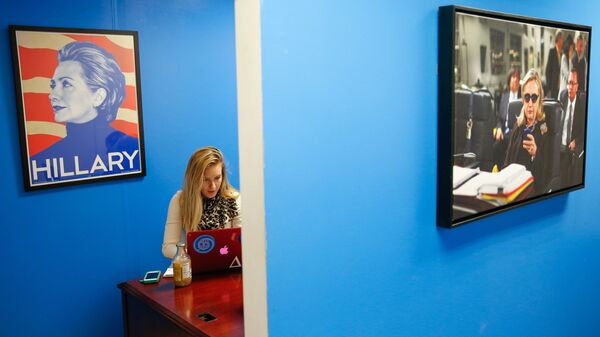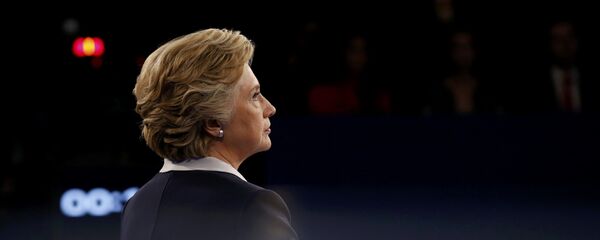US District Court Judge Emmet G. Sullivan has ruled that Mrs. Clinton is obliged to answer two additional questions related to the long-running scandal involving her use of a private email server while she served as secretary of state, Judicial Watch president Tom Fitton has reported.
Federal court ruled yesterday Hillary Clinton must answer additional email questions, under oath. @JudicialWatch's heavy lifting gets results… (Pic with Michael Bekesha, JW attorney who argued for us in court!) https://t.co/vpoPn59VSS pic.twitter.com/hHHS3gpfK7
— Tom Fitton (@TomFitton) 15 ноября 2018 г.
Clinton now has 30 days to answer two questions under oath about how her private email system was set up. The first asks the former first lady to describe "the creation of the clintonemail.com system, including who decided to create the system, the date it was decided to create the system, why it was created, who set it up, and when it became operational."
Secondly, Clinton is asked to "identify the basis" for an apparent discrepancy between her 2015 testimony before the House of Representatives Select Committee on Benghazi, where she indicated that 90-95 percent of her emails were on a government server, and later revelations that over 30,000 emails and attachments from during her 2009-2013 tenure as secretary of state were actually held on a private server in her house.
Judicial Watch filed the Freedom of Information Act lawsuit against Clinton and members of her staff, including former deputy chief of staff Huma Abedin, following revelations that the aide was granted "special government employee" designation, allowing her to accept outside employment while working at the White House.
Judicial Watch president Tom Fitton called Judge Sullivan's ruling "good news," but said it was "shameful that Judicial Watch attorneys must continue to battle the State and Justice Departments, which still defend Hillary Clinton, for basic answers to our questions about Clinton's email misconduct."
In addition to security concerns, including fears that Clinton's server may have been hacked by foreign state actors, the email server issue has led to questions about why Clinton felt the need to keep her communications private. In 2017, new documents turned over to Judicial Watch by the State Department revealed examples of 'pay to play' politics at the Clinton state department, including donations to the Clinton Foundation which appeared to have been made in exchange for things like government appointments, policy positions, and government contracts.
In March 2016, WikiLeaks set up a searchable archive of over 30,000 emails and email attachments sent to and from Clinton's private email server while she was secretary of state, with new documents added in early 2018.



